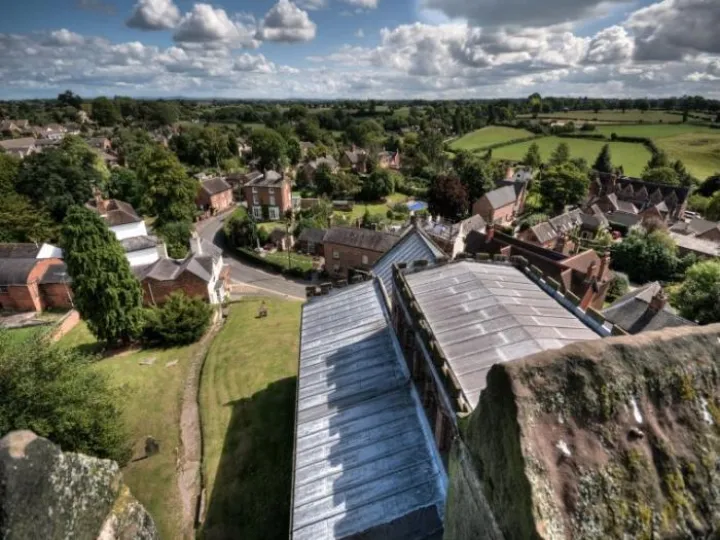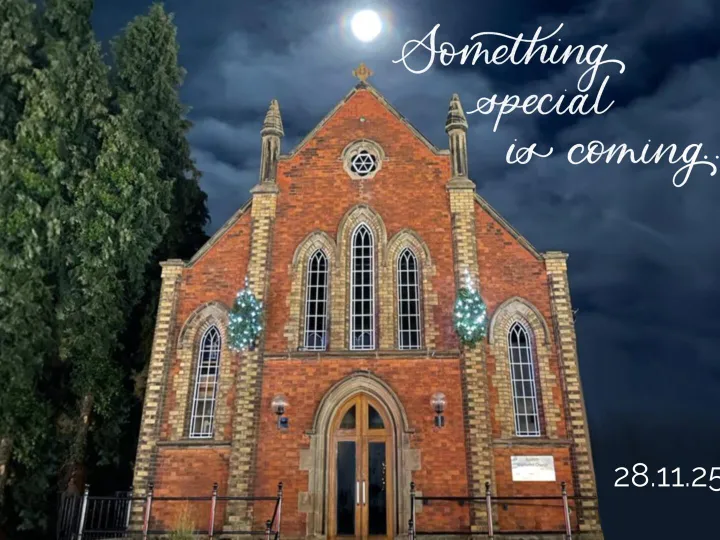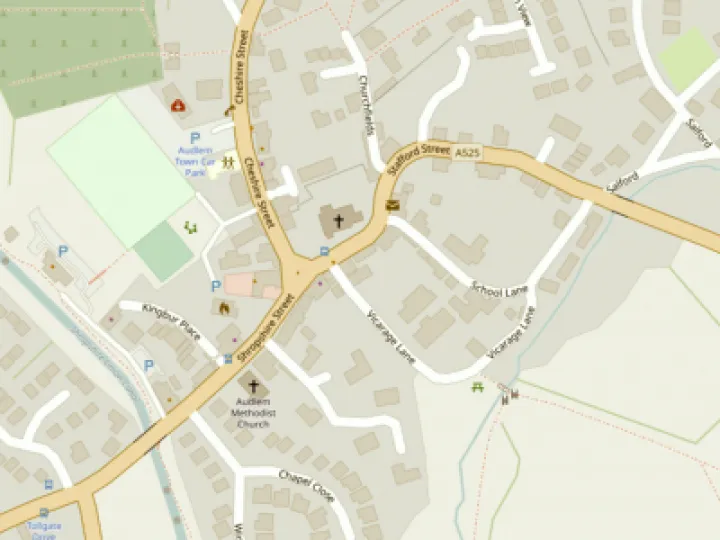
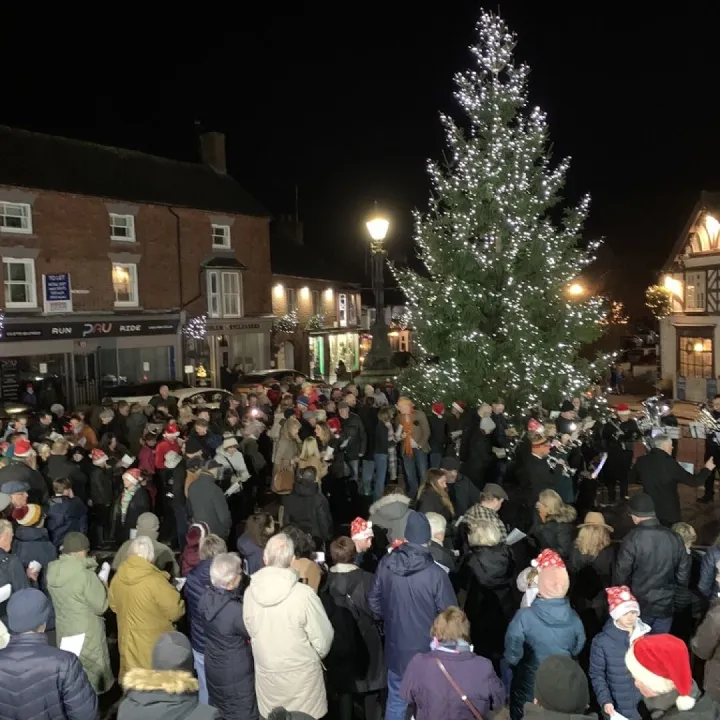




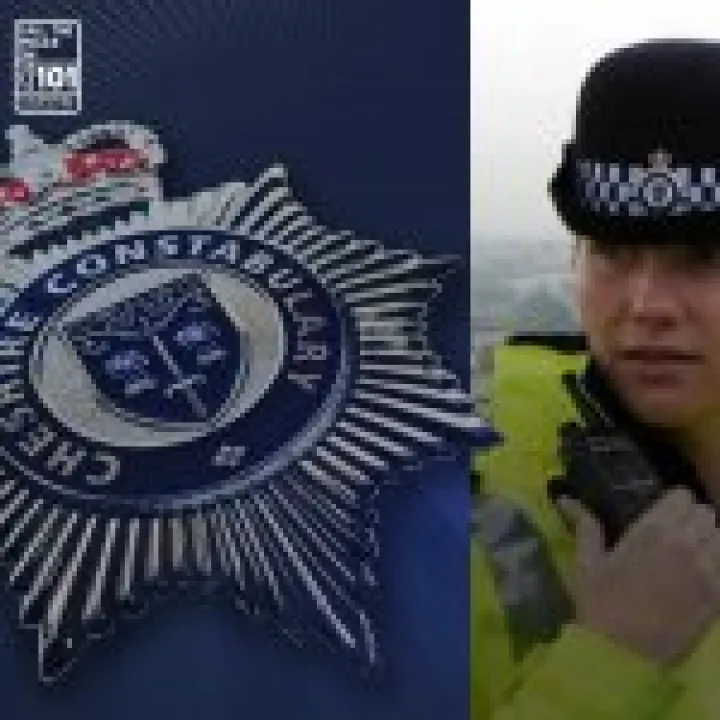

Earlier this week, AudlemOnline received an email from the Curator at the Stockport Story Museum, saying:
"I was wondering if you could help me. On the 24th December 2013 a wonderful story titled 'An uplifting tale of heroism' was posted on your site detailing the World War I diary of George Dickinson.
"I am currently working on an exhibition at the Stockport Story Museum which will explore the impact of World War I on Stockport and I was hoping to get in touch with the author of the story, Peter Oxley, to see if we could feature his grandfather's story in the exhibition in some way."
After we put the museum in touch with Peter Oxley, we also responded to the email and added that we are pleased AudlemOnline is read in Stockport and received the following reply: "AudlemOnline is indeed read in Stockport- it's a fantastic website!"
Peter tell us the museum is keen to display a transcript of the diary and photos featured in the story, depicting life for a British Soldier in WW1.
Just in case you missed the original publication – it was after all on Christmas Eve and many may have had other things on their mind – here it is, an uplifting tale indeed.
Uplifting Tale of Heroism
I lost my favourite uncle a couple of weeks ago to a sudden illness and as I attended the funeral the Friday before Christmas and my wife and I were comforting my Auntie, I was reminded of how my Auntie had previously given me with a very important keepsake about ten years ago.
This was a 1916 WW1 'GIPSY waistcoat pocket Diary' that belonged to my grandfather which contained amazing daily details of his experiences, and was part of a truly remarkable story of the day my family history was written.
I thought that given we are to soon mark the 100th anniversary of the 'Great War', AudlemOnline readers might find this a very uplifting story at Christmas.
Please note that this story has been made into a play and that copywright exists and no part may be copied, or reused for commercial gain or other purposes.
Salvation at the 11th Hour
In 1914 my Grandfather, George Dickinson, from Stockport, was encouraged like so many others to sign up to serve 'king and country' in the Great War that had engulfed continental Europe and joined the Cheshire regiment (6 Battalion).
His diary, combined with anecdotal evidence told to my Mum and Auntie told a tale of constant 'training', 'manoeuvres' and 'marching...marching...and more marching'. Indeed it seems that they marched all over the North East of France and Belgium, especially in the area North and East of the Somme Battlefield.
The very positive effect of moving around like this meant my Granddad and his mates were effectively kept in reserve and didn't sit in a front line trench, with the terrible mortal risks we know about today.
Food
Daily problems were finding food to supplement the basic army rations (scarcely enough to feed a child) and keeping clean and free of lice in one's irritatingly itchy army combat uniforms.
The hunt for food resulted in the regular summary slaughter of farm animals, many of which were roaming the countryside in fields and forests, having been 'liberated' by the shelling or abandonment of farms.
One day, for example my Granddad and his comrades found a wandering pig near a forest and killed it for pork meat that kept them fed for many days.
George was also briefly sent to the ruined village of Neuve Chappelle, (where the brave Australians, supported by other gallant soldiers from India and Portugal later fought a terrible battle with the Germans) a mere 1 mile away from Aubers Ridge near Frommelles.
A certain Adolf
There, a certain Corporal Adolf Hitler was serving in the Bavarian Observer Corps in a Bunker still visible today right beside the D141 as in this photograph, just west of Fromelles (Hitler would go back every night to nearby Fournes-en-Weppes where he was billeted in a cosy house). If only the significance of that had been known at the time... who knows, my Grandad might have changed the course of world history with a lucky pot-shot in the right direction. Sadly it wasn't to be, and the 'marching tour' continued.
Soon, however, the training stopped and the squad were sent to be positioned in the trenches at Vimy Ridge, close to the village of Givenchy, just north of Arras.
Life in the trenches was very tough. Mud, rats and dysentery were common problems for all the soldiers on both sides of the front line. It was typical for the Germans to launch an artillery bombardment in the evenings which could shatter the nerves and resolve of even the toughest man. British Howitzer shells brought terror to the German front line in a similar fashion.
My grandfather's diary relates the witness he bore to some amazing sights, like the Royal Flying Corps (who apparently had air superiority over the trenches in this sector) and the fighter ace known as 'Mayon the mad Mayor' who George describes as the most daring pilot he had ever seen, climbing up high then diving his biplane down on the German trenches and strafing the cowering soldiers with machine guns and small bombs!
Luck runs out
On the night of the evening of 16th June 1916, George's luck finally ran out and he and his fellow Stockport friends were told by an officer that they would be going 'Over the Top' to launch a reconnaissance raid on the German trench positions.
The men waited nervously until a silent hand signal was given and they climbed up the wooden ladders and quietly stepped clear of the parapet.
They had just got towards the middle of no mans land when a flare lit up the sky from the German side and machine gun fire began, seemingly in every direction.
George dived into a shell crater to try to find some cover and was separated from his mates. Then things got even worse as German mortars opened fire and one shell hit my granddad, seriously wounding him in the leg. Now he was bleeding badly and could hear German voices as their soldiers had now left the trenches to mop-up and kill the British stragglers.
George became unconscious but when he came to, the machine gun fire had stopped and the battlefield was heavy with smoke from the shelling. He suddenly saw a figure out of the smog, and tried to get to his feet but it was impossible due to his now very weak state.
Horror
Imagine his horror as instead of seeing a Khaki-clad Tommy, the man was in fact, a grey-tunic clad 'Hun' offering him only a rifle and bayonet... One can only imagine how one's heart would sink at such a moment, but to George's amazement, instead of having the bayonet plunged into his shaking body, the Wermacht soldier instead looked around to check if any of his fellow Germans were around...there were none, so he threw his rifle down and hoisted my injured Grandad onto his shoulders to give him a piggy-back ride.
The German soldier then said "Wo ist di Hospital, Tommy?" (Where is the Hospital?) and George gestured that it was down the hill, south of the battlefield next to the Bethune Rd, upon which the German quickly ran sideways through the fog of no-man's land and away from the front line, across a small stream and eventually crossed the British frontline unseen, to soon find the field hospital with its Red Cross tents and slip into one unobserved.
There he popped Granddad down onto a table and shouted "Tommy Krank, Tommy Krank!" ("Tommy hurt") until a medical orderly appeared with wide-eyed amazement, followed by a guard, who drew his revolver. George said "No! He has just saved my life and risked his own. Please treat him well."
Tea and cake
The German was then given some tea and cake prior to being marched off to the Prisoner of War camp (and probably later transferred to the POW camp in Cumbria or the Isle of Man) but not before the two men were allowed to exchange address details.
George thanked the gallant German (a Private 'Glandorff') who had clearly had enough of the awful horrors of war and in a far reaching split-second decision, decided to take matters into his own hands. In such epoch-making moments, history turns.
The nice thing about the story is that the two men stayed in touch, remaining penpals and exchanging Christmas cards and even met up for a comrades' reunion (so I believe) in Bergen in Norway in the mid 1920's prior to both getting married. George's leg wound troubled him for the rest of his life but he never complained about it, grateful to have survived the war at all.
In touch
George stayed in touch with Glandorff (who we think lived in Munich) for years, but sadly stopped receiving letters from him in the late 1930's. One can only guess why this would be... maybe he was Jewish and fled Germany, or maybe the Nazi regime persecuted him for some reason – we will never know.
One thing is for sure, had he not bravely acted as he did, my Granddad would surely have died, and my Mum and her sister would never have been born, and I would not be here to relate this story to you now.
At Christmas it is good to remember that good men and women do not always get to chose where they come from or which 'side' they are on, and that from the very darkest abyss can sometimes shine forth the brightest light of humanity.
Merry Christmas Audlem!
This article is from our news archive. As a result pictures or videos originally associated with it may have been removed and some of the content may no longer be accurate or relevant.
Get In Touch
AudlemOnline is powered by our active community.
Please send us your news and views using the button below:
Email: editor@audlem.org

